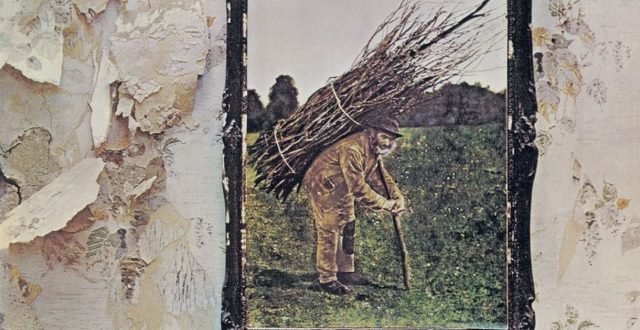Led Zeppelin Celebrate 50 Years Of ‘Led Zeppelin IV’

Led Zeppelin are celebrating the 50th anniversary of their fourth studio album, best known as Led Zeppelin IV, which was released on 8 November 1971.
Led Zeppelin IV remains one of the most creatively influential and commercially successful albums in the history of music. As an artistic statement, the record struck a chord that continues to resonate globally among music fans while inspiring generations of musicians.
Commercially, Led Zeppelin IV is a juggernaut, selling more than 37 million copies worldwide. In the US, the album was recently certified 24x platinum by the RIAA, ranking as the fifth best-selling album of all time as well as the best-selling album by a British artist (tied with The Beatles aka “The White Album”). Outside America, the album is certified diamond in Canada (x2); multi-platinum in Australia (9x), the U.K. (6x), and France (2x); platinum in Argentina, Brazil, Italy, Norway, Poland, and Spain; and gold in Germany (3x).
Led Zeppelin IV also topped the album charts in the UK, Canada, and the Netherlands, and peaked at #2 in Australia, Denmark, France, Sweden, as well as the US, where it remains the best-selling album of the band’s catalog.
Before the success and accolades of 1971, the band first spent the fall and winter of 1970 writing and recording Led Zeppelin IV, with early recording sessions beginning in London at Island Studios in December 1970. A month later, the band moved to Headley Grange, a country house in Hampshire, England. They converted the house into a recording studio and used the Rolling Stones Mobile Studio to record most of the album’s basic tracks with engineer Andy Johns, who also engineered some of Led Zeppelin II and III.
Jimmy Page, who also produced the album, says: “After the brief stay that Robert and I had at Bron-Yr-Aur cottage [while working on Led Zeppelin III], I could see a situation where we all resided at Headley Grange and had a recording truck. I was keen on this whole idea of using it as a workplace so you could concentrate totally on the effort of making the music, while residing at the location.”
“It was all a bit experimental,” John Paul Jones says. “But it was the first time we’d actually stayed together. Before, we were recording in studios…and it was always hotel, studio, hotel, studio. We’d never been in one place and had recording facilities there. So that was really a new way of working for us, and I think it was a really good way. We just had this huge old room with a big fireplace with all the equipment set up. And you could just wander down and start stuff up if nobody was there, or if somebody else would turn up, there would be a bit of jam. There was music making in some way all the time, which, as you can see by the result, worked out pretty well.”
This unconventional (for the time) approach gave the group more freedom to capture spontaneous performances and moments of inspiration. Of the writing of Stairway To Heaven, Robert Plant recalls:
“I was sitting next to Jimmy in front of the fire at Headley Grange. He’d written this chord sequence and was playing it to me. I was holding a pencil and paper and suddenly my hand is writing the words ‘There’s a lady who’s sure all that glitters is gold…’ I sat there, looked at the words and almost leaped out from my seat. Looking back, I suppose I sat down at the right moment.”

